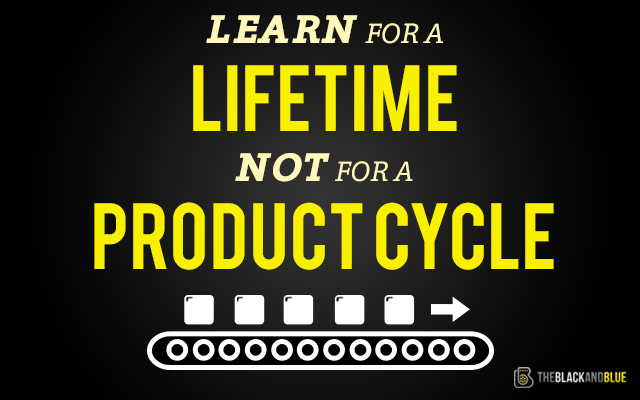These days, a lot of filmmakers are obsessed with the wrong stuff.
They spend hours researching cameras, sensor specs, and exploring different rigs. They spend their free time comparing the difference between a $500 follow focus and a $550 one. They look to rumor websites, tech blogs, and forums for answers.
They want to know what’s next and when they can get their fix?
None of this is particularly bad… if you want your film career to be a hobby.
But if you want to be a professional, you’re going to have to dive deeper than these obsessed filmmakers. You’re going to have to do the hard work. You’re going to have to actually learn beyond the product cycle.
I’m sure you know somebody who meets the description above. It’s hard to avoid the obsessions with the echo chamber we live in. It’s your colleagues, it’s your friends, it’s social media, it’s websites, it’s people like me who sit behind a keyboard and write articles on blogs.
Not all of us are guilty, but many of us are complicit.
I always try to prioritize “learn for a lifetime,” but if I’m honest with myself, I can’t truly teach you what you need to know. For that, you have to learn on your own.
And I don’t mean “learn” in the sense that reading a camera review helps you “learn” about it. I’m talking about lessons gleaned from experience — awkward mishaps, terrible mistakes, potent failures. Lessons you grasp from having just one chance to get that shot of a plane racing a car, all the while having the day’s budget of $10,000 resting on your shoulders.
You don’t learn these things from a blog — not even mine.
You certainly don’t learn them from products, gear, and camera rigs. After all, what happens when next year’s model comes out? You’re back at square one: the forums, the manuals, the blogs.
But if you learn for a lifetime and teach yourself skills like slating, focus pulling, or directing you don’t have to worry about which camera you’re using. Those skills, among many others, are platform-agnostic. There’s tremendous value in becoming great at something that will serve a purpose for the rest of your career regardless of the twists and turns it, and technology, might take.
It’s true you’ll still need to become familiar with cameras, manuals, and have a foundation of technical knowledge. Obviously that’s necessary to have a career involving such advanced cameras (whether as an AC or a DP or a producer). But obsessing over it is unncessary.
Why waste time pixel peeping? At some point, you cross an invisible line from due diligence to stay informed to gear porn.
If that’s your hobby, then so be it. But don’t try to pass it off as “work” or as doing your job.
There’s nothing wrong with having a genuine interest in the technology, the gear, and the equipment that enables filmmaking. There’s everything wrong, however, with believing that that’s what’s going to lead you to a long, successful career in Hollywood.
Consider this:
- 10 years ago… I knew how to troubleshoot a dial-up modem.
- 15 years ago… I knew how to program my VCR.
- 20 years ago… I knew how to save the very last of dying batteries in my Game Boy.
None of that technical wizardry helps me now.
At least not specifically. It informs my ability to think on the fly and fix problems on set, but none of the particular information or specific tricks play any role in my life anymore.
You can justify your fondness for gear as a hobby, as entertainment, as a way to blow off steam. To some degree, you can even justify it as research.
You just have to remember the information you get as a result is fleeting — gone in a year when the next glorious camera enters the market.
So, say it with me now one last time: Learn for a lifetime, not for a product cycle.
It’s more than a mantra. It’s a jolt to your career. It’s a philosophy that, if you allow it, will open dozens of doors and make way for tremendous opportunity.
The filmmaking process has always been married to technology. The filmmaker, however, has always been separate from the technology; able to bend, adjust, adapt, and move forward with the changes because of skills learned through experience.
Don’t focus only on the process and the tech.
Instead, be a filmmaker and learn the skills that will help you craft a career.
After all, skills last longer than a warranty.

Embed this graphic on your website, just copy and paste the code below into your blog or web page:
Or share this graphic using the social buttons below:



